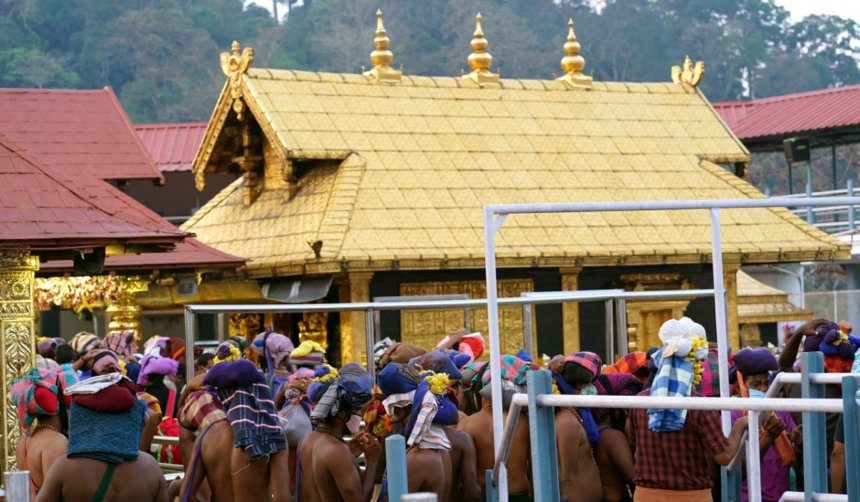Sabarimala Pilgrimage Crowd Management : The annual Mandalam pilgrimage at Lord Ayyappa shrine in Sabarimala was brought under control on Wednesday.
Sabarimala Pilgrimage Crowd Management : Overview
Sabarimala Pilgrimage Crowd Management : The annual Mandalam pilgrimage to the Lord Ayyappa shrine in Sabarimala witnessed a surge in pilgrim numbers, prompting the Left Democratic Front (LDF)-led Kerala government to take immediate action to control the situation. Despite facing criticism from political opponents, the government implemented measures such as limiting virtual queue bookings, extending darshan hours, and enhancing security protocols along the pilgrimage route.
ALSO READ : University Of Guam Provides Online Training For Caregivers Focusing On Dementia Care To Enhance Their Skills
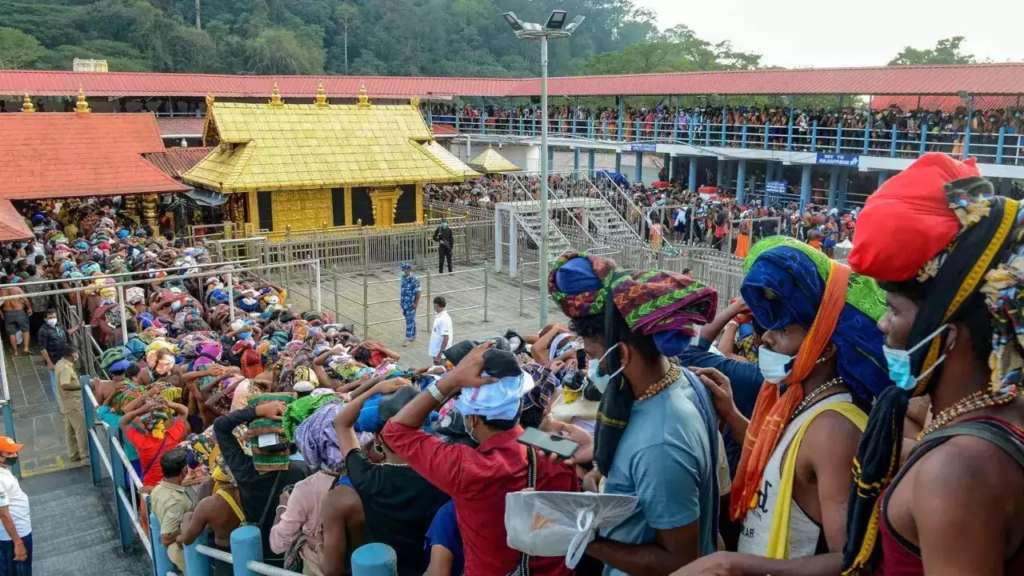
Pilgrim rush and crowd management
On December 7, Sabarimala recorded the highest number of pilgrims at 1.02 lakh (102,000), surpassing the average of around 80,000. This year saw a notable 30% increase in women, children, and elderly pilgrims compared to the previous season, posing challenges in managing the heavy footfall.
To address the situation, Devaswom Minister K Radhakrishnan was dispatched to Sabarimala to review crowd management measures with top officials of the Travancore Devaswom Board (TDB), which administers the temple. The government increased the darshan time from 17 to 18 hours a day, reduced virtual queue bookings from 90,000 to 80,000 a day, and heightened security measures at key points along the pilgrimage route, including Erumely, Pamba, and Nilackal.
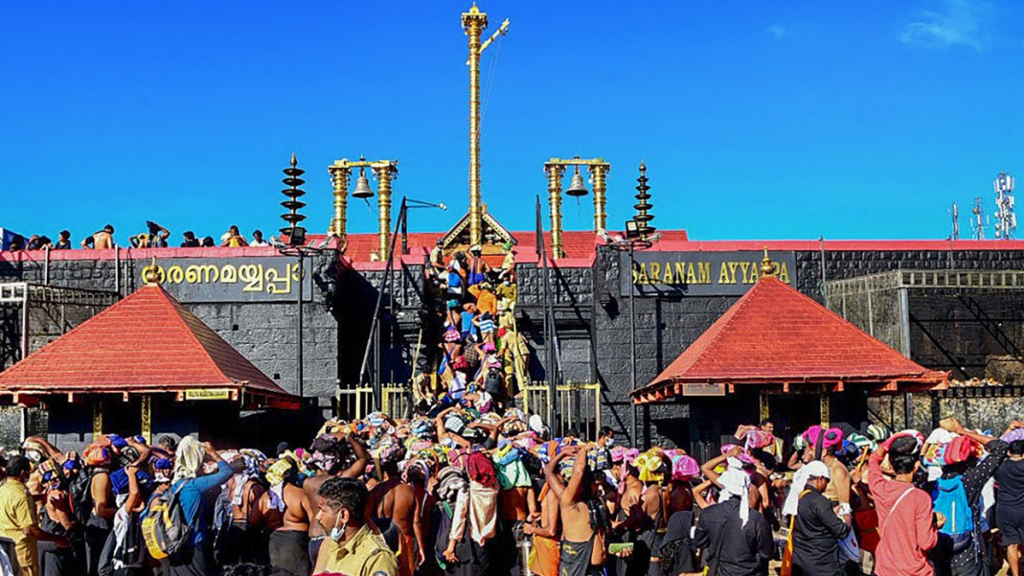
Political criticism
Despite the government’s efforts, both the Congress and the BJP criticized the LDF-led Kerala government for alleged mismanagement of the pilgrim rush. The BJP accused the government of persecuting Hindu believers and pointed to the situation in Sabarimala as evidence. Meanwhile, the Congress criticized the government’s handling of devotees, citing issues such as a lack of transport facilities, medical support, drinking water, and food.
Minister Radhakrishnan dismissed what he called “sinister allegations” with “ulterior motives,” stating that such accusations were raised due to a natural rise in the number of pilgrims.
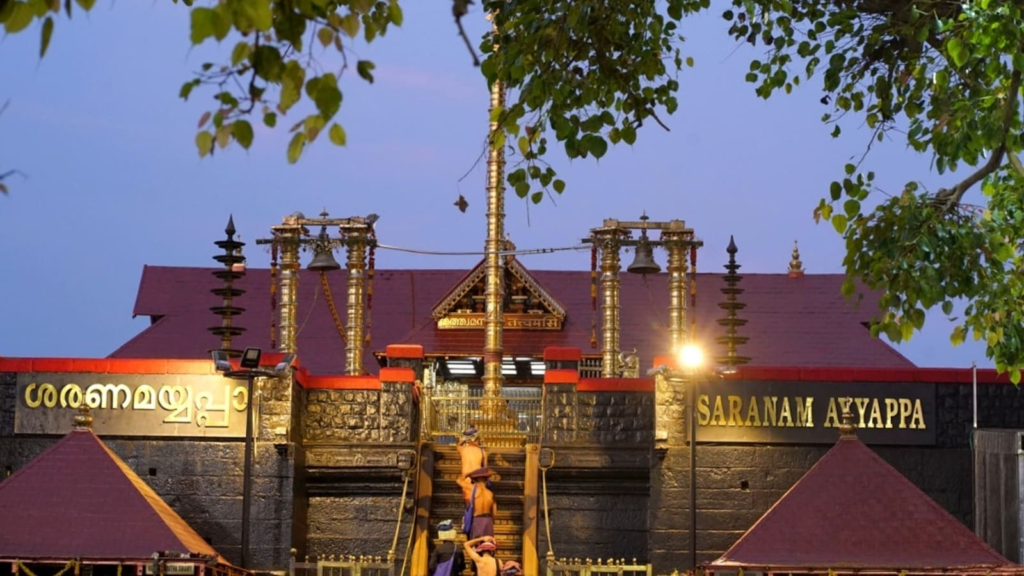
Complaints and challenges
In recent days, pilgrims have reported a lack of basic amenities such as drinking water, food, and toilets along the pilgrimage route. There were also allegations of buses and vehicles carrying pilgrims being stopped for prolonged periods at various junctions and towns on the way to Sabarimala.
Tragically, a 45-year-old pilgrim from Chathannur in Kollam district died on the Sathram-Sabarimala route. The pilgrim collapsed while heading to the shrine through the traditional forest route.
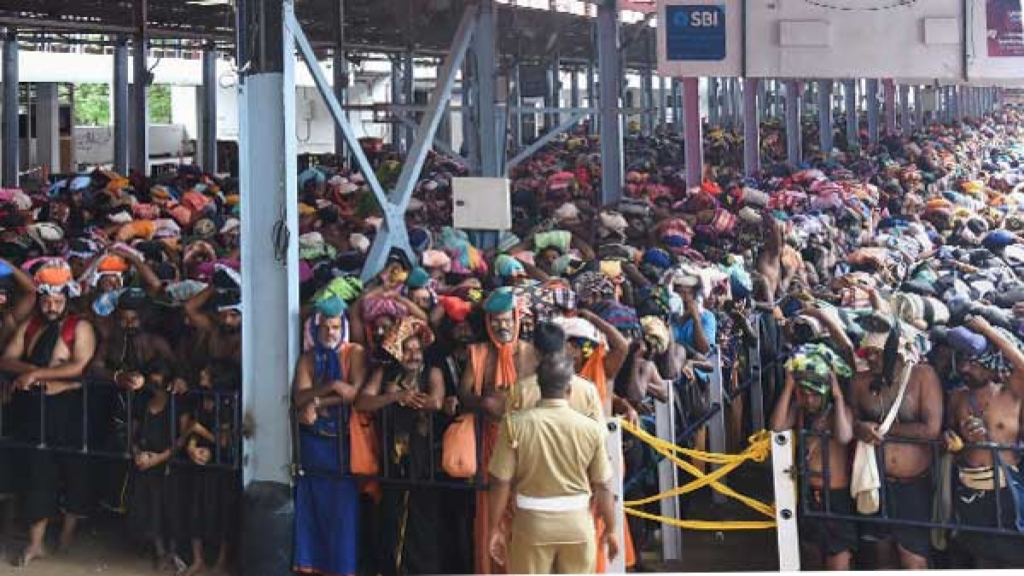
Kerala high curt guidelines
In response to the myriad challenges encountered by pilgrims, the Kerala High Court has proactively issued a comprehensive set of guidelines aimed at enhancing the overall pilgrimage experience. Recognizing the diverse needs of the pilgrims, the guidelines advocate for the establishment of dedicated queues catering specifically to women, children, and differently-abled individuals, thereby streamlining the movement and ensuring a more inclusive and accessible pilgrimage environment.
Furthermore, the court has recommended the distribution of nourishing biscuits and ‘chukku vellam’—water infused with dried ginger—to those patiently waiting in queues, providing not only sustenance but also a touch of comfort. To address concerns related to shelter and sanitation, the guidelines emphasize the creation of well-equipped pilgrim sheds and the deployment of employees in shifts to maintain cleanliness throughout the pilgrimage route.
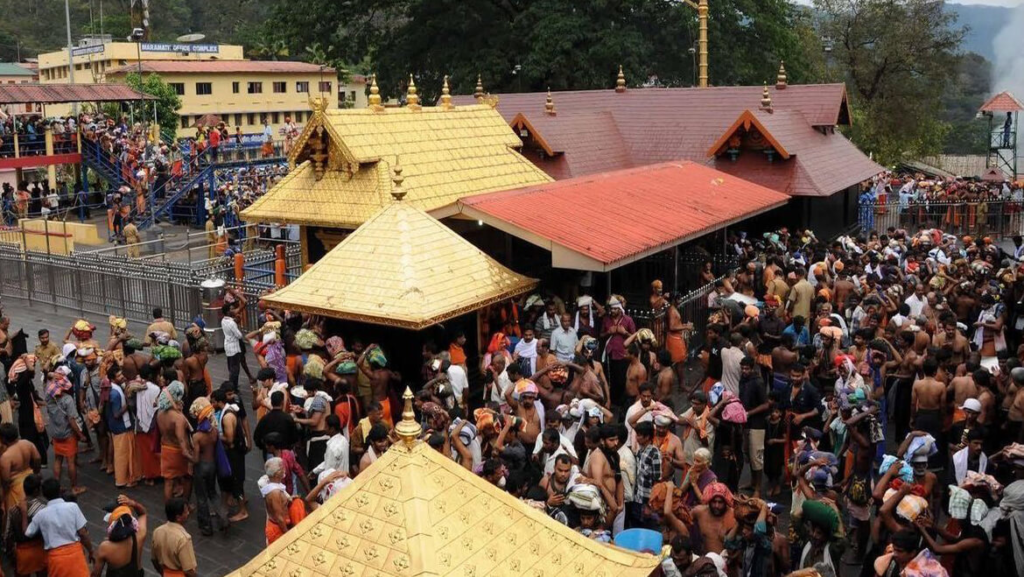
Additionally, in a bid to ease the logistical challenges associated with parking, the court has underscored the need to identify and designate additional parking grounds along the pilgrimage route, thus contributing to a more organized and hassle-free pilgrimage for all participants. These proactive measures collectively reflect a commitment to fostering a safer, more accommodating, and enriching pilgrimage experience for individuals from all walks of life.
Conclusion
The Sabarimala pilgrimage, a significant annual event, faced unprecedented challenges this year due to a surge in pilgrim numbers. While the government took swift measures to control the situation, political criticism and complaints from pilgrims highlighted the need for ongoing improvements in crowd management and infrastructure. As the pilgrimage season continues, the focus remains on ensuring a safe and enriching experience for devotees visiting the Lord Ayyappa shrine.
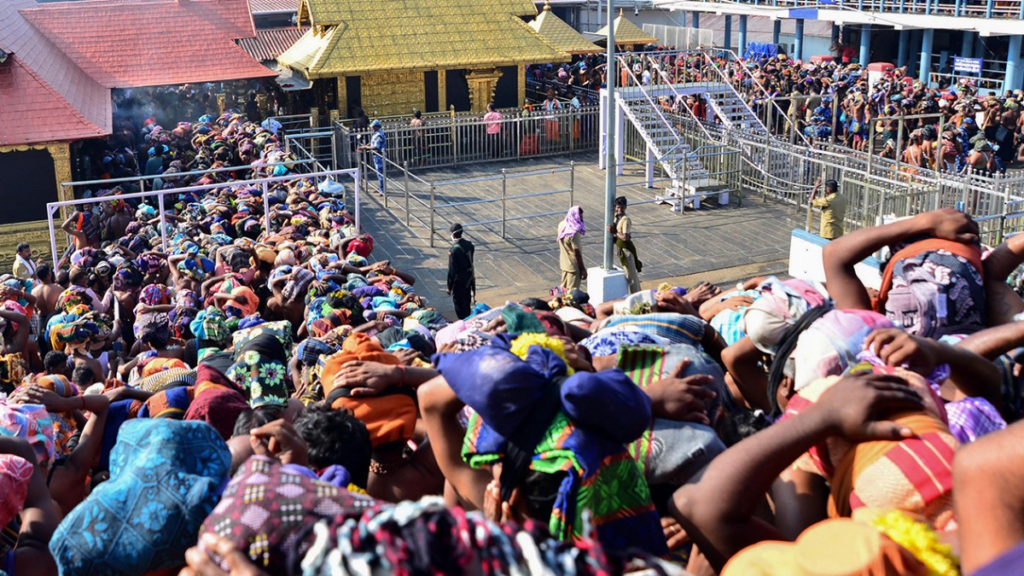
To explore more news : Click Here
ALSO READ : Oxford University Press India Launches Holistic Development – Focused Wellness Curriculum In 2023







